SGGP
The Ho Chi Minh City People's Council has just passed a Resolution regulating the level of support for community health collaborators (CTVSKCĐ) in Ho Chi Minh City with an estimated budget of over VND99.5 billion in 2024. This is an important resource to develop a network of collaborators in public health care, an extension of the grassroots health system.
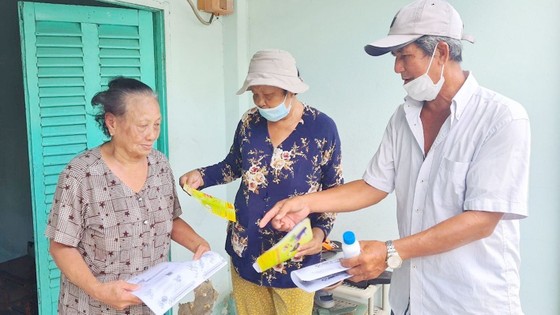 |
| Community health workers in Can Gio district promote and mobilize people to prevent epidemics. Photo: QUANG HUY |
Resources need to be prioritized
Met Mr. Pham Van Phong, An Dong hamlet, An Thoi Dong commune (Can Gio district) when he was texting a message on the hamlet's Zalo group, reminding young mothers to take their children aged 6-12 months to take vitamin A at the commune health station. After finishing his work, he continued to receive leaflets from medical staff preparing to go to each household to distribute to people to prevent dengue fever, hand, foot and mouth disease...
Mr. Phong shared: “Over 5 years of working as a “prisoner and general” person, it was hard, sometimes the medical station suddenly needed me to leave all my work to support… but I never hesitated or felt discouraged, it was all for the health of the community, it was fun so we participated enthusiastically.”
Mr. Nguyen Van Hoa (Rach La hamlet, An Thoi Dong commune) said he had experienced many emotions with his job, only hoping that people would raise their awareness in taking care of their health and that of their families.
“Before, we did this work quietly, even though the local government supported us with some money, we were very happy. Now that the city is paying attention, everyone is very excited, which gives us more motivation to continue our activities,” Mr. Hoa shared.
According to Associate Professor, Dr. Tang Chi Thuong, Director of the Ho Chi Minh City Department of Health, for many years, the number of medical staff at each health station has fluctuated between 5-10 people, on average a health station serves 30,000 people (many health stations serve more than 100,000 people). In addition to performing the functions and tasks assigned according to regulations of the Ministry of Health, health stations are also responsible for managing 20 health programs: tuberculosis, mental health, HIV, leprosy, population and development, the elderly, maternal and child health, environmental sanitation, non-communicable diseases, school health, expanded immunization, Covid-19 prevention, health communication... Therefore, a health worker must undertake many programs to meet work requirements, leading to the inability to closely connect with the community and convey communication messages to the people.
“With the characteristics of a densely populated urban area like Ho Chi Minh City, each ward and commune health station is responsible for managing and implementing health care programs that can reach tens of thousands of people, especially stations responsible for health management for over 100,000 people. In addition to strengthening and improving the capacity of health stations, mobilizing and promoting the effectiveness of the community health workforce is indispensable, even needing to be given top priority when implementing solutions to strengthen the health human resources that have been lacking due to various reasons in the post-Covid-19 period,” Associate Professor, Dr. Tang Chi Thuong informed.
Appropriate policies and strategies
According to Associate Professor, Dr. Tang Chi Thuong, the practical response to the Covid-19 pandemic in recent times has left many important lessons for the health system not only in Ho Chi Minh City but also for the health system nationwide, in which the role and importance of the force of community health workers are affirmed. It is important to have appropriate policies and strategies to maintain, strengthen and enhance the capacity of this network so that they are truly a non-specialized but indispensable medical force to effectively implement community health care activities.
Recently, the Ho Chi Minh City People's Council passed a resolution regulating the level of support for community health collaborators in Ho Chi Minh City, starting from January 1, 2024. According to this resolution, community health collaborators in Thu Duc City and 16 districts will receive a support level of VND 500,000/person/month and community health collaborators in 5 districts will receive a support level of VND 550,000/person/month.
In addition, partial support for purchasing family health insurance cards for cases of CTVSKCĐ who do not have health insurance cards is 300,000 VND/person/year. Applicable subjects include CTVSKCĐ and related agencies, organizations and individuals. Associate Professor, Dr. Tang Chi Thuong said that the main tasks are to detect, monitor and report disease cases; educate and provide health advice to people; support in disease management and help create a healthy living environment such as: instructing the community on environmental sanitation, encouraging exercise, supporting the improvement of the living environment, etc.
According to Ms. Le Thi Ngoc Dung, Vice Chairman of Binh Tan District People's Committee, in the coming time, the district will continue to promote the work of inviting retired doctors and nurses to collaborate in community health groups; at the same time, assign the district health center to review and make a list of this team so that in addition to the level of support according to the resolution of the Ho Chi Minh City People's Council, the district will also find sources of support and additional training for the team of collaborators.
Mr. Nguyen Ngoc Xuan, Vice Chairman of Can Gio District People's Committee, said that he has directed relevant units to implement support for the community health collaborators; directed the district health center to build and expand the network of community health collaborators at the grassroots level with sufficient quantity, quality assurance, methodical and unified management to serve as an extension of the grassroots health system.
Source


![[Photo] General Secretary concludes visit to Azerbaijan, departs for visit to Russian Federation](https://vphoto.vietnam.vn/thumb/1200x675/vietnam/resource/IMAGE/2025/5/8/7a135ad280314b66917ad278ce0e26fa)
![[Photo] President Luong Cuong presents the decision to appoint Deputy Head of the Office of the President](https://vphoto.vietnam.vn/thumb/1200x675/vietnam/resource/IMAGE/2025/5/8/501f8ee192f3476ab9f7579c57b423ad)

![[Photo] General Secretary To Lam begins official visit to Russia and attends the 80th Anniversary of Victory over Fascism](https://vphoto.vietnam.vn/thumb/1200x675/vietnam/resource/IMAGE/2025/5/8/5d2566d7f67d4a1e9b88bc677831ec9d)
![[Photo] Prime Minister Pham Minh Chinh meets with the Policy Advisory Council on Private Economic Development](https://vphoto.vietnam.vn/thumb/1200x675/vietnam/resource/IMAGE/2025/5/8/387da60b85cc489ab2aed8442fc3b14a)
![[Photo] National Assembly Chairman Tran Thanh Man chairs the meeting of the Subcommittee on Documents of the First National Assembly Party Congress](https://vphoto.vietnam.vn/thumb/1200x675/vietnam/resource/IMAGE/2025/5/8/72b19a73d94a4affab411fd8c87f4f8d)
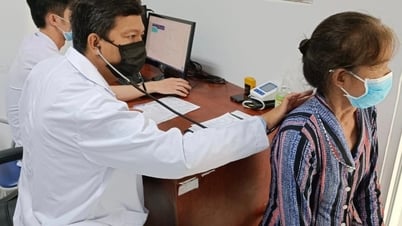

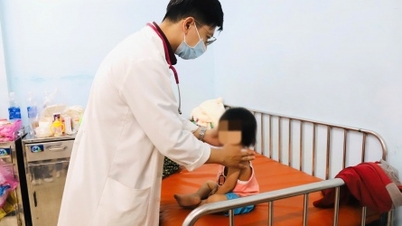

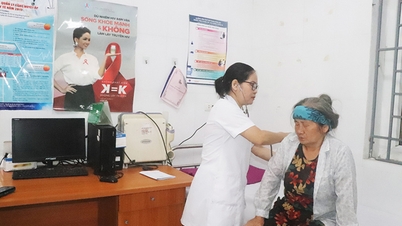

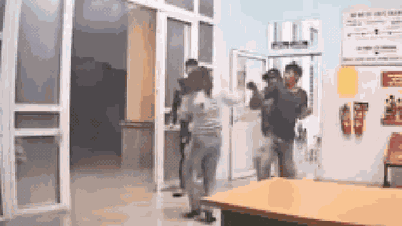








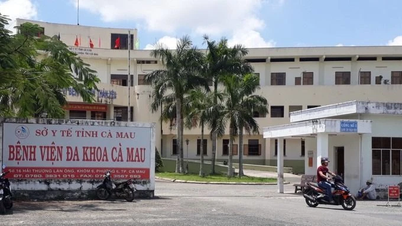
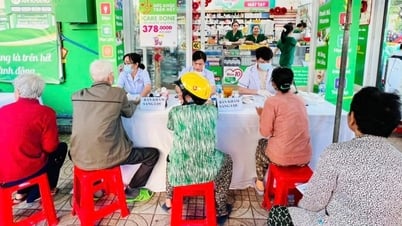
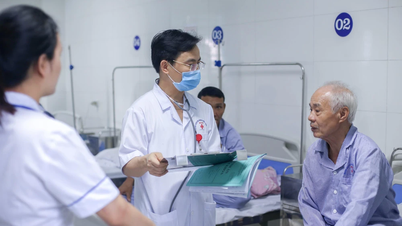




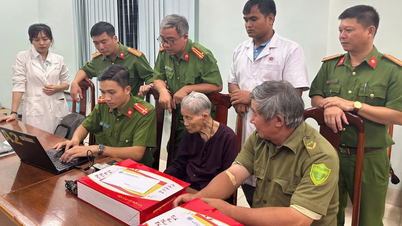

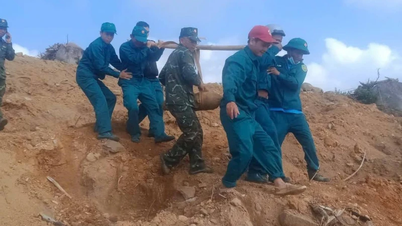

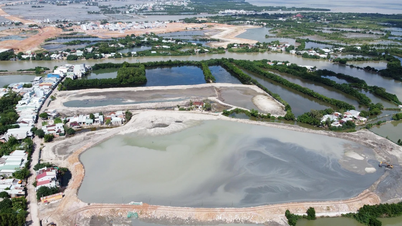






























![[Photo] Prime Minister Pham Minh Chinh talks on the phone with Singaporean Prime Minister Lawrence Wong](https://vphoto.vietnam.vn/thumb/402x226/vietnam/resource/IMAGE/2025/5/8/e2eab082d9bc4fc4a360b28fa0ab94de)












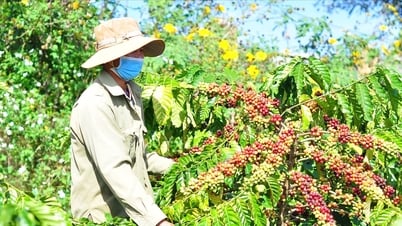





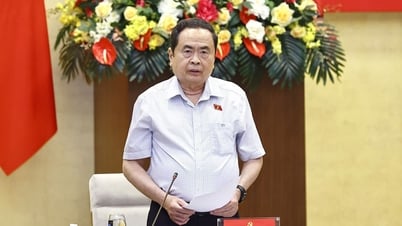












Comment (0)